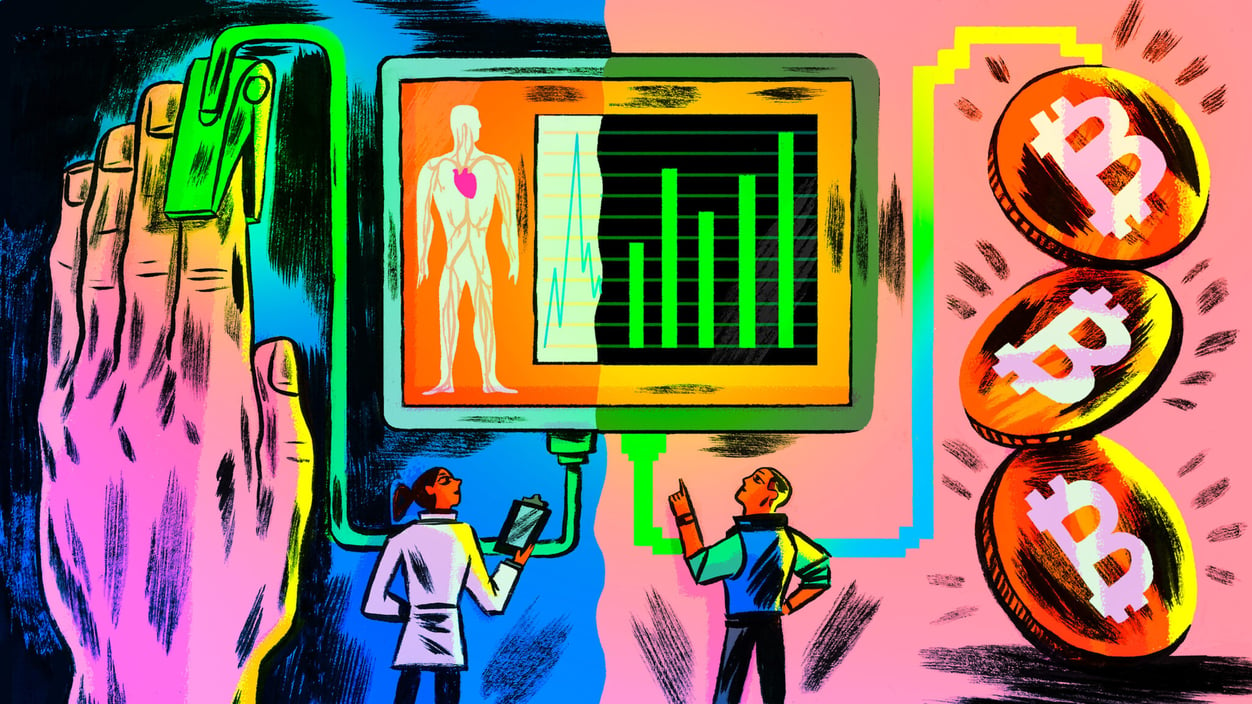a stat investigation
How bitcoin became a better bet for Semler Scientific

Mike Reddy for STAT
At the most recent earnings call for Semler Scientific — a company that for almost two decades has marketed a single medical product to detect artery blockages in older Americans — chairman Eric Semler declared a surprising pivot: "We are a bitcoin-first company." After a large purchase of the cryptocurrency, Semler Scientific now claims to be the fourth-largest bitcoin treasury in the U.S.
The company's adoption of a cryptocurrency strategy followed an escalating series of threats to its core business, suggesting that its long-running partnership with major health insurers was driven not by science or an enduring commitment to better health care, but by a singular desire to reach into a multibillion-dollar pot of federal money.
STAT's latest investigation is based on more than two dozen interviews with former employees of Semler Scientific and UnitedHealth, in addition to conversations with patients, financial analysts, former investors, and more. Reporters also reviewed hundreds of pages of corporate financial filings and other records. Read more from the same dream team that brought you Health Care's Colossus.
policy
Former governors warn that Medicaid cuts would have dire consequences
Former governors from both parties on Monday said they were deeply concerned with proposed cuts to Medicaid, the joint state-federal program that covers medical costs for people with low income or disabilities. "I don't have a problem with changes," said former New Hampshire Gov. Chris Sununu, a Republican. "The way they're doing it is awful."
Sununu was joined by former democratic governors Roy Blunt of North Carolina and Kathleen Sebelius of Kansas, who ran the federal health department during the Obama administration. During a panel at the Aspen Ideas: Health meeting, all three warned that $700 billion in Medicaid cuts passed by the House of Representatives would be disastrous. Blunt noted that, if enacted, the cuts would force states to make painful decisions to cover budgetary shortfalls, such as spending less on administering Supplemental Nutrition Assistance Program benefits, which help low-income households buy food.
Researchers have estimated Medicaid cuts could result in more than 16,600 preventable deaths a year. But they also say that's likely an undercount, and, as Daniel Payne reports, Senate Republicans are discussing ways to cut the program even further by sharply reducing federal payments for new beneficiaries. — Jonathan Wosen
health
Small study adds to evidence around GLP-1 use for type 1 diabetes
Obesity drugs were first approved to treat type 2 diabetes, but there's a growing movement to test them in type 1 diabetes, too. Research presented Monday at a large diabetes meeting showed some promise for this approach, STAT's Liz Cooney reports. Patients who took a GLP-1 drug fared better than those in a control group at keeping their blood glucose levels in a healthy range while also losing more weight than those who weren't taking the drug. Read more from Liz about the results.
And in case you missed it, another recent story on the "what can't GLP-1 medications do" beat: STAT's Veronica Paulus wrote her first story for us about a small pilot study that found GLP-1 agonists reduced monthly migraine days by almost half.


No comments